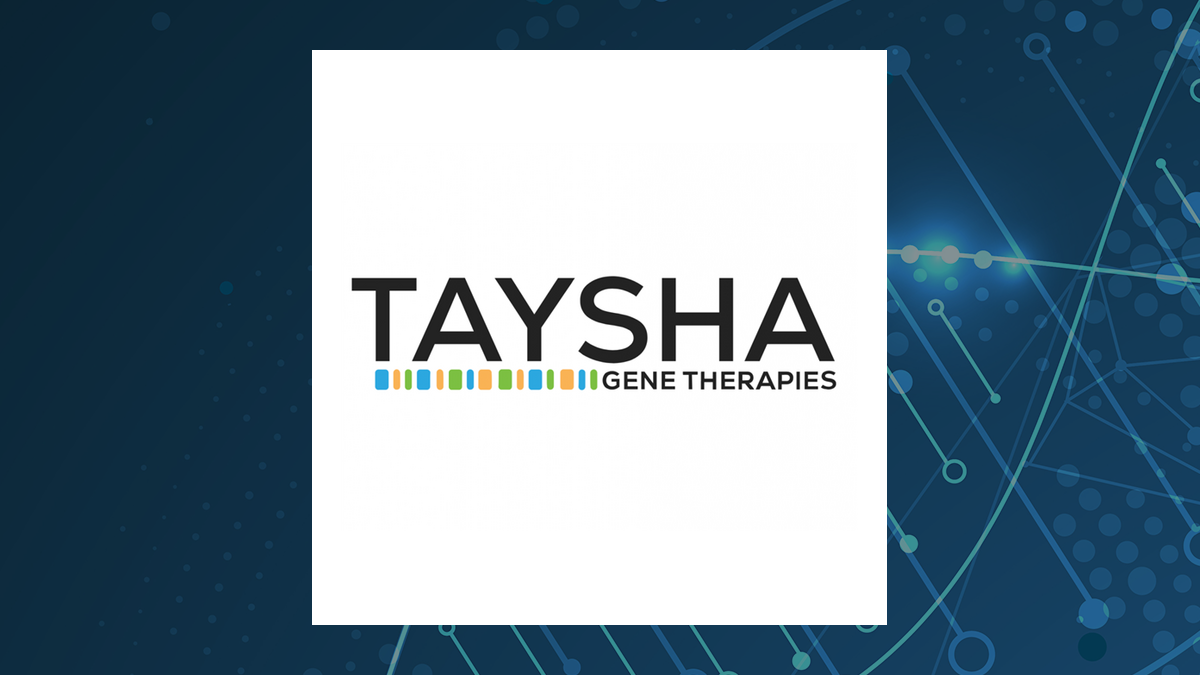Neurocrine Biosciences (NASDAQ:NBIX – Get Free Report) and Taysha Gene Therapies (NASDAQ:TSHA – Get Free Report) are both medical companies, but which is the superior business? We will contrast the two companies based on the strength of their earnings, risk, analyst recommendations, dividends, institutional ownership, valuation and profitability.
Analyst Ratings
This is a breakdown of recent recommendations for Neurocrine Biosciences and Taysha Gene Therapies, as reported by MarketBeat.
| Sell Ratings | Hold Ratings | Buy Ratings | Strong Buy Ratings | Rating Score | |
| Neurocrine Biosciences | 0 | 6 | 16 | 0 | 2.73 |
| Taysha Gene Therapies | 0 | 0 | 8 | 0 | 3.00 |
Neurocrine Biosciences currently has a consensus target price of $139.25, indicating a potential upside of 4.33%. Taysha Gene Therapies has a consensus target price of $6.88, indicating a potential upside of 172.82%. Given Taysha Gene Therapies’ stronger consensus rating and higher possible upside, analysts plainly believe Taysha Gene Therapies is more favorable than Neurocrine Biosciences.
Volatility and Risk
Earnings & Valuation
This table compares Neurocrine Biosciences and Taysha Gene Therapies’ revenue, earnings per share and valuation.
| Gross Revenue | Price/Sales Ratio | Net Income | Earnings Per Share | Price/Earnings Ratio | |
| Neurocrine Biosciences | $1.89 billion | 7.06 | $249.70 million | $2.42 | 55.33 |
| Taysha Gene Therapies | $15.45 million | 30.63 | -$111.57 million | ($0.67) | -3.78 |
Neurocrine Biosciences has higher revenue and earnings than Taysha Gene Therapies. Taysha Gene Therapies is trading at a lower price-to-earnings ratio than Neurocrine Biosciences, indicating that it is currently the more affordable of the two stocks.
Institutional and Insider Ownership
92.6% of Neurocrine Biosciences shares are owned by institutional investors. Comparatively, 77.7% of Taysha Gene Therapies shares are owned by institutional investors. 4.6% of Neurocrine Biosciences shares are owned by insiders. Comparatively, 2.3% of Taysha Gene Therapies shares are owned by insiders. Strong institutional ownership is an indication that endowments, large money managers and hedge funds believe a stock is poised for long-term growth.
Profitability
This table compares Neurocrine Biosciences and Taysha Gene Therapies’ net margins, return on equity and return on assets.
| Net Margins | Return on Equity | Return on Assets | |
| Neurocrine Biosciences | 13.23% | 12.85% | 9.02% |
| Taysha Gene Therapies | -722.06% | N/A | -55.72% |
Summary
Neurocrine Biosciences beats Taysha Gene Therapies on 10 of the 14 factors compared between the two stocks.
About Neurocrine Biosciences
 Neurocrine Biosciences, Inc. discovers, develops, and markets pharmaceuticals for neurological, neuroendocrine, and neuropsychiatric disorders in the United States and internationally. The company's products include INGREZZA for tardive dyskinesia and chorea associated with Huntington's disease; ALKINDI for adrenal insufficiency; Efmody capsules for classic congenital adrenal hyperplasia; Orilissa tablets for endometriosis; and Oriahnn capsules to treat uterine fibroids. Its product candidates in clinical development include valbenazine to treat dyskinetic cerebral palsy in pediatrics and adults; NBI-921352 to treat developmental and epileptic encephalopathy syndrome in pediatrics and adults; NBI-827104 to treat epileptic encephalopathy with continuous spike-and-wave during sleep; NBI-1076986 to treat movement disorders; crinecerfront to treat congenital adrenal hyperplasia in adults and children; EFMODY to treat congenital adrenal hyperplasia and adrenal insufficiency in adults; valbenazine for the adjunctive treatment of schizophrenia; NBI-1065845 for the treatment of inadequate response to treatment in major depressive disorder; luvadaxistat to treat cognitive impairment related to schizophrenia; NBI-1117568 for the treatment of schizophrenia; NBI-1070770 to treat major depressive disorder; NBI-1117570 for the treatment of symptoms of psychosis and cognition in neurological and neuropsychiatric conditions; and NBI-1117569, NBI-1117567, and NBI-1065890 to treat CNS indications. The company also has license and collaboration agreements with Heptares Therapeutics Limited; Takeda Pharmaceutical Company Limited; Idorsia Pharmaceuticals Ltd; Xenon Pharmaceuticals Inc.; Voyager Therapeutics, Inc.; BIAL Portela & Ca, S.A.; Mitsubishi Tanabe Pharma Corporation; and AbbVie Inc. The company was incorporated in 1992 and is headquartered in San Diego, California.
Neurocrine Biosciences, Inc. discovers, develops, and markets pharmaceuticals for neurological, neuroendocrine, and neuropsychiatric disorders in the United States and internationally. The company's products include INGREZZA for tardive dyskinesia and chorea associated with Huntington's disease; ALKINDI for adrenal insufficiency; Efmody capsules for classic congenital adrenal hyperplasia; Orilissa tablets for endometriosis; and Oriahnn capsules to treat uterine fibroids. Its product candidates in clinical development include valbenazine to treat dyskinetic cerebral palsy in pediatrics and adults; NBI-921352 to treat developmental and epileptic encephalopathy syndrome in pediatrics and adults; NBI-827104 to treat epileptic encephalopathy with continuous spike-and-wave during sleep; NBI-1076986 to treat movement disorders; crinecerfront to treat congenital adrenal hyperplasia in adults and children; EFMODY to treat congenital adrenal hyperplasia and adrenal insufficiency in adults; valbenazine for the adjunctive treatment of schizophrenia; NBI-1065845 for the treatment of inadequate response to treatment in major depressive disorder; luvadaxistat to treat cognitive impairment related to schizophrenia; NBI-1117568 for the treatment of schizophrenia; NBI-1070770 to treat major depressive disorder; NBI-1117570 for the treatment of symptoms of psychosis and cognition in neurological and neuropsychiatric conditions; and NBI-1117569, NBI-1117567, and NBI-1065890 to treat CNS indications. The company also has license and collaboration agreements with Heptares Therapeutics Limited; Takeda Pharmaceutical Company Limited; Idorsia Pharmaceuticals Ltd; Xenon Pharmaceuticals Inc.; Voyager Therapeutics, Inc.; BIAL Portela & Ca, S.A.; Mitsubishi Tanabe Pharma Corporation; and AbbVie Inc. The company was incorporated in 1992 and is headquartered in San Diego, California.
About Taysha Gene Therapies
 Taysha Gene Therapies, Inc., a gene therapy company, focuses on developing and commercializing adeno-associated virus-based gene therapies for the treatment of monogenic diseases of the central nervous system. It primarily develops TSHA-120 for the treatment of giant axonal neuropathy; TSHA-102 for the treatment of Rett syndrome; TSHA-121 for the treatment of CLN7 disease; TSHA-118 for the treatment of CLN1 disease; TSHA-105 for the treatment of for SLC13A5 deficiency; TSHA-113 for the treatment of tauopathies; TSHA-106 for the treatment of angelman syndrome; TSHA-114 for the treatment of fragile X syndrome; and TSHA-101 for the treatment of GM2 gangliosidosis. Taysha Gene Therapies, Inc. has a strategic partnership with The University of Texas Southwestern Medical Center. Taysha Gene Therapies, Inc. was incorporated in 2019 and is headquartered in Dallas, Texas.
Taysha Gene Therapies, Inc., a gene therapy company, focuses on developing and commercializing adeno-associated virus-based gene therapies for the treatment of monogenic diseases of the central nervous system. It primarily develops TSHA-120 for the treatment of giant axonal neuropathy; TSHA-102 for the treatment of Rett syndrome; TSHA-121 for the treatment of CLN7 disease; TSHA-118 for the treatment of CLN1 disease; TSHA-105 for the treatment of for SLC13A5 deficiency; TSHA-113 for the treatment of tauopathies; TSHA-106 for the treatment of angelman syndrome; TSHA-114 for the treatment of fragile X syndrome; and TSHA-101 for the treatment of GM2 gangliosidosis. Taysha Gene Therapies, Inc. has a strategic partnership with The University of Texas Southwestern Medical Center. Taysha Gene Therapies, Inc. was incorporated in 2019 and is headquartered in Dallas, Texas.
Receive News & Ratings for Neurocrine Biosciences Daily - Enter your email address below to receive a concise daily summary of the latest news and analysts' ratings for Neurocrine Biosciences and related companies with MarketBeat.com's FREE daily email newsletter.
